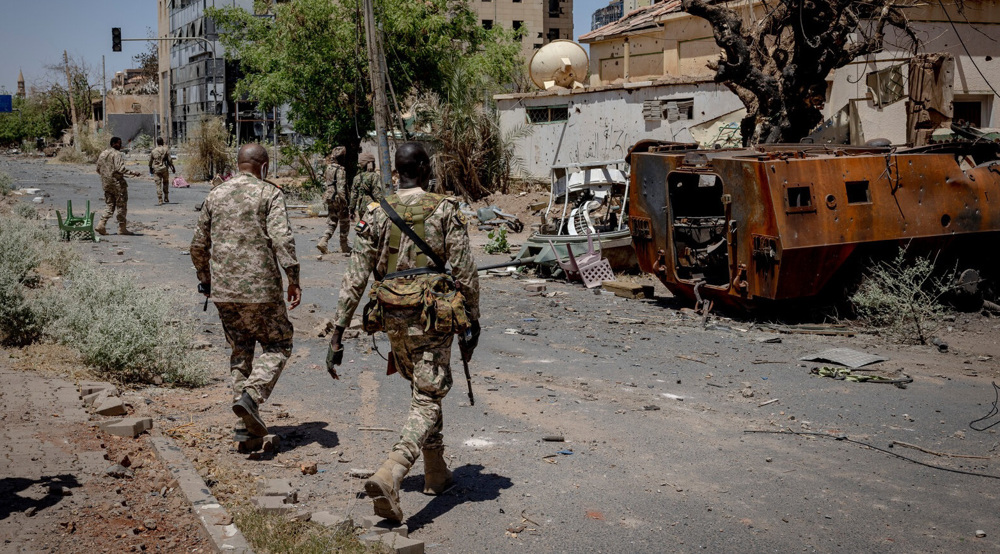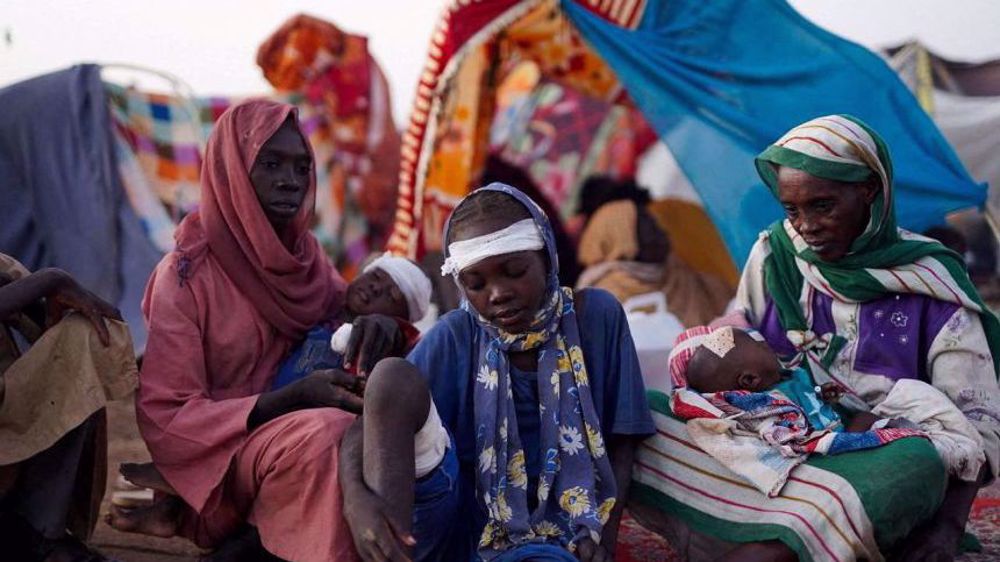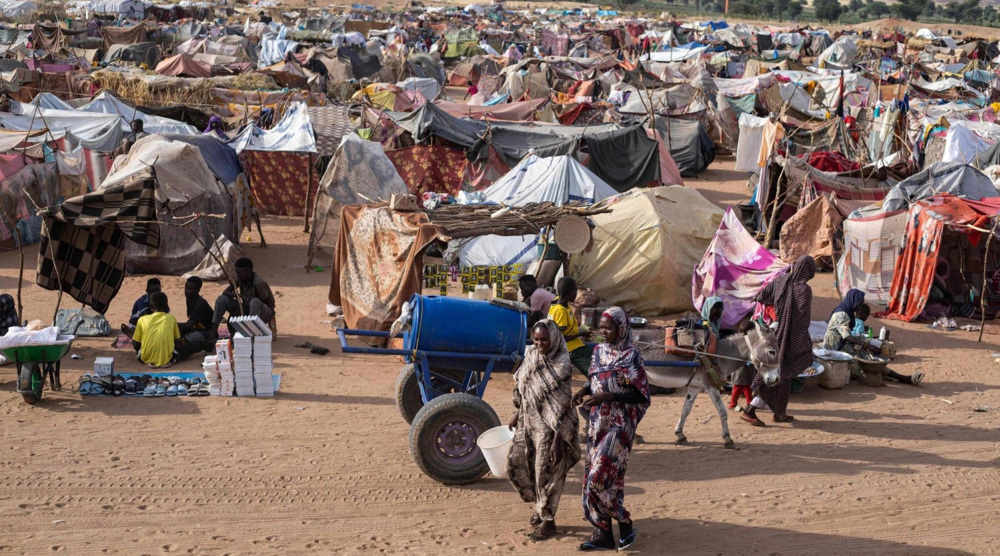Bashir laments Israeli ties advice as unrest continues
Fresh anti-government protests have hit Sudan, with President Omar al-Bashir lamenting that he had been advised to normalize ties with Israel in order to ensure stability in his country.
Protests have rocked cities across Sudan since December 19 when demonstrators took to the streets against a government decision to raise the price of bread.
On Friday, Sudanese police fired tear gas at protesters as they took to the streets after midday prayers to chant anti-government slogans in the capital's twin city of Omdurman.
The protests came after Bashir was quoted talking of improved ties with Israel and the pledge that a normalization would help stabilize growing unrest sweeping Sudan.
The embattled president declined to specify who gave him the advice but said in a meeting with the religious leaders in the capital Khartoum that he believed “sustenance is in the hands of God.”
Sudan has forged close relations with Saudi Arabia in recent years, reportedly sending troops to Yemen to help the kingdom's invasion of the impoverished nation.
Bashir's remarks come amid growing calls for his resignation in the wake of deadly demonstrations against rising prices and food and fuel shortages in the country over the past months.
Amnesty International has said Sudan's security forces have shot dead at least 37 protesters during the anti-government rallies.
Sudan is also mired in economic woes, including an acute foreign currency shortage and soaring inflation, which is running at close to 70 percent. Authorities have declared curfews and a state of emergency in several states.
Israeli media reported in November that the Tel Aviv regime was actively working to establish diplomatic ties with Sudan, as part of wider efforts to upgrade relations with central African countries.
The reports said Israeli and Sudanese representatives had held a secret meeting to discuss diplomatic relations in exchange for financial Israeli aid to the African country.
The parties discussed “the warming of relations between the countries and possible Israeli aid to Sudan in the fields of medicine, agriculture and the economy,” The Times of Israel reported.
The daily Haaretz reported that Israel had urged the US and other countries to improve their relationship with Sudan in response.
In 2016, Sudanese Foreign Minister Ibrahim Ghandour said Khartoum was open to the idea of normalizing ties with Israel in exchange for lifting 20-year-old US trade sanctions.
Israel is said to be seeking to take advantage of the Takfiri militancy gripping parts of Africa to sell advanced military equipment to conflict-ridden states in the continent.
The Israeli push came almost two years after Sudan joined Saudi Arabia and Bahrain in cutting relations with Iran.
Also, the New York Times reported last month that child soldiers from Sudan's Darfur have been fighting on behalf of Saudi Arabia in the frontline of the war on Yemen, with money being their only motive.
Citing several Sudanese mercenaries and lawmakers, the report said that as many as 14,000 Sudanese militants have been fighting in Yemen alongside Saudi-backed forces while at least hundreds of them have been killed so far.
The Saudis have reportedly used their vast oil wealth to outsource the war, mainly by hiring survivors of the Darfur conflict to operate in Yemen, many of them children.
US defenses overwhelmed by Iran’s drone and missile barrages: WSJ
IRGC says second US THAAD anti-missile unit destroyed
CNN journalists abducted by Israel while reporting on damage from Iranian strikes
Iran denies attacks on Oman as it warns of US-Israeli ‘false-flag’ ops
Iran knows where Netanyahu convenes his meetings: Ex-IRGC chief
‘Law of jungle’: China says Israeli-US aggression against Iran must stop
Iran says committed to regional security; retaliatory attacks only target Israel, US assets
'Blatant war crime': Iran denounces US-Israel strikes on Gandhi hospital in Tehran













 This makes it easy to access the Press TV website
This makes it easy to access the Press TV website